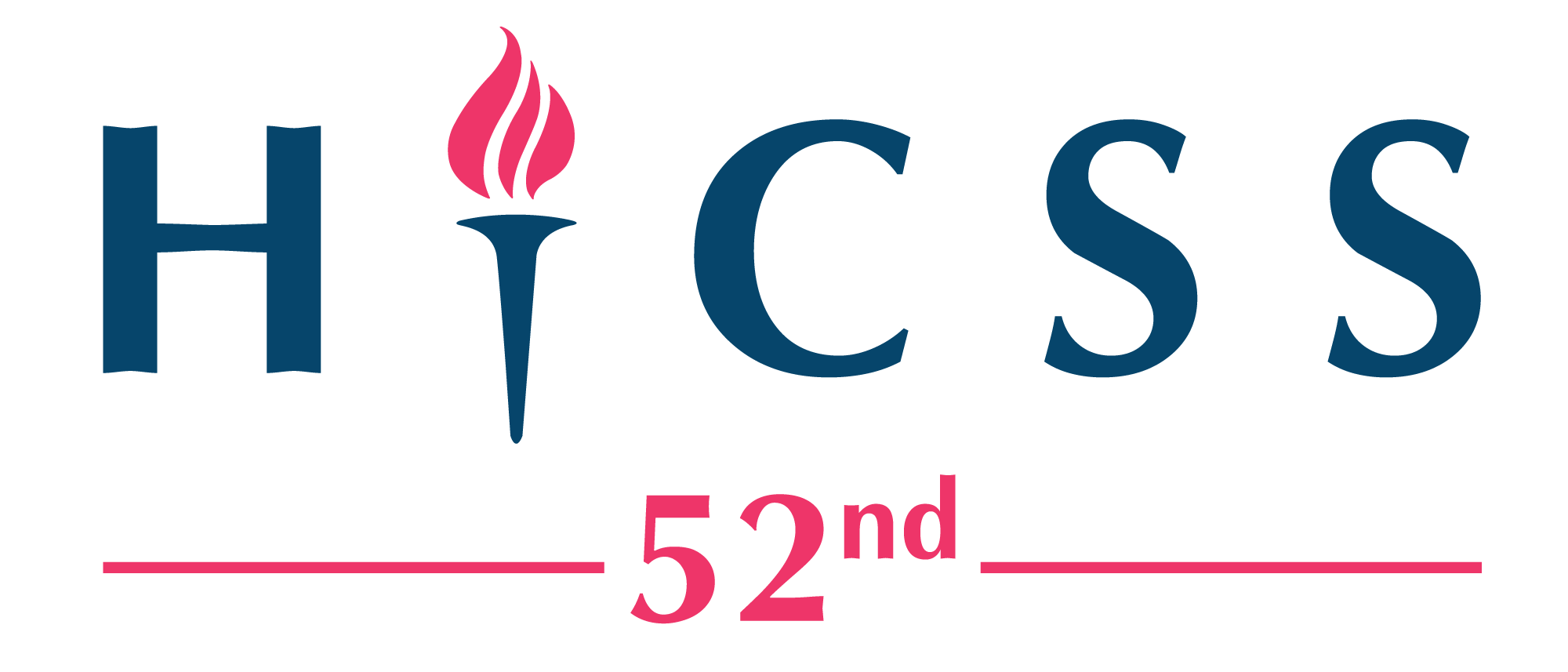HICSS - 52 Digital Government Track
52nd Hawaii International Conference on System Sciences
January 8-11, 2019 - Grand Wailea, Maui, HI, USA
Overview
Minitracks
Tutorials and Workshops
Other Links
Data-driven Government: Creating Value from Big and Open Linked Data



Minitrack Description
The opening of more and more data and the ability to collect more and more data using low-cost devices enabled by Internet of Things (IoT) result in a data-driven government. Nevertheless, data is useless unless it is used to create value from it. For this, data needs to be shared, processed and analyzed with traditional and advanced methods towards operational and strategic decision-making.
Data-driven government refers to sensing and the subsequent collecting of all kinds of data using machine-readable data formats. This data can be used for internal purposes, but also for opening the data to the public to create transparency, and accountability or to enable participation and even business innovation. Open data can be combined with all kind of data sources to infer and generate value. This can result in recommendations for improving the public sector, business model innovation and the creation of transparency. These developments are resulting in drastic changes of the public sector.
The rise of all kinds of data has resulted in the demand for new approaches for organizing, storing, processing, analyzing, curating, linking and visualizing results of data. These approaches all form part of data value chains, which enable data users to extract value from the data. Although there is a huge potential, how the exploiting of data should be accomplished and what is the impact of public organizations is not understood. All these developments impact the operation of governments and their relationship with the public. There are changes at the technical, organizational, managerial and political level that impact the capabilities needed, the making of policies and traditional institutional structures.
This minitrack is aimed at discussing theories, methodologies, experience reports, literature and case studies in the field of Big & Open Linked Data (BOLD), Information Processing, Data Analytics, and Data Value in Government. We solicit for papers covering both organizational and technical aspects and combining theory and practice. Papers taking interdisciplinary approaches and covering a multitude of aspects are strongly encouraged. Furthermore, we promote a diversity of research methods to study the challenges of this multifaceted discipline including best practices, case studies, design approaches, literature reviews and interviews.
Minitrack topics include, but are not limited to:
- Open Data Practices, Technologies and Applications in Government
- Impact of data-driven government and society on the technical, organizational and institutional level
- Big & Open Linked Data (BOLD)
- Metadata and semantic approaches
- Data value, data value chains, and data governance
- Data analytics, processing, intelligence and visualization
- Data-driven strategies and policies
- Data quality, privacy, trust and security
- Internet of Things (IoT) for data-driven government
- Changing relationship between government, private organizations and society
- Methods and technologies leading to enhanced digital public services
- Data-driven public sector innovations and applications
- Architectural standards, principles and frameworks
- Technical, semantic, organizational, managerial and legal/policy aspects of interoperability
- System development, implementation and agile approaches for digital public services
- System, user, data and process-based integration
- Co-creation using data and citizen engagement
- Information and cloud infrastructures, shared services, cloud providers
- Reuse and data quality and ownership
- Semantic ontologies, web services and modeling for governmental infrastructures
- Cloud computing, Software as service (SaaS), ICT-services, scalability, reliability, flexibility
- Data platforms, interoperability, information sharing and public business models
- Cross-organizational modeling and visualization ranging from the organizational to technical level
- Service-oriented architectures, web services, semantic web services, orchestration and composition
- Citizen-driven and entrepreneurial approaches based on open data
- Adoption, failure and success factors and organization of a data-driven government
More information on the minitrack chairs:
Marijn Janssen is Professor in ICT and Governance and head of the ICT section of the Technology, Policy and Management Faculty of Delft University of Technology. He conducted and managed a large number of research projects and published over 400 refereed publications, is co-editor of Government Information Quarterly (GIQ), associate editor of International Journal of E-Government Research (IJEGR) serves on several editorial boards and conferences in the area of e-government. He is conference chair of the annual IFIP EGOV conference series. For more information, visit www.tbm.tudelft.nl/marijnj.
Judie Attard is a postdoctoral research fellow at the SFI ADAPT centre within Trinity College Dublin. Judie Attard is a PhD graduate of the University of Bonn in Germany. Her research interests include open data, data value, data value chains, and data governance, and she has published a number of scientific publications at various conferences and journals on the topics. Judie contributed to a number of EU-funded projects that revolved around the exploitation of open data, including LinDa and Openbudgets.eu.
Charalampos Alexopoulos is a Postdoctoral Researcher at the Department of Information and Communications Systems Engineering of the University of the Aegean, publishing on open data, decision support, smart cities and e-government. He is also a Researcher in the Information Systems Laboratory of the same department, working on European and National funded research and pilot application projects on open data (ENGAGE, SHARE-PSI 2.0) and decision support (EU-COMMUNITY, PADGETS, NOMAD). Charalampos serves as Programme and Organisation Committee Member of the annual Samos Summit on ICT-enabled Governance. He is currently the project manager of the Gov 3.0 project "Scientific foundations, training and entrepreneurship activities in the domain of ICT-enabled Governance".
Co-Chairs
Marijn Janssen
(Primary Contact)
Faculty of Technology, Policy and Management
Delft University of Technology
Jaffalaan 5
NL-2600 GA Delft, The Netherlands
Email: m.f.w.h.a.janssen@tudelft.nl
Judie Attard
ADAPT Centre, School of Computer Science and Statistics
Trinity College Dublin
O'Reilly Building
Dublin 2
Dublin, Ireland
Email: judie.attard@adaptcentre.ie
Charalampos Alexopoulos
Department of Information & Communication Systems Engineering
University of the Aegean
30 Voulgaroktonou St., Athens, Greece
Email: alexop@aegean.gr
